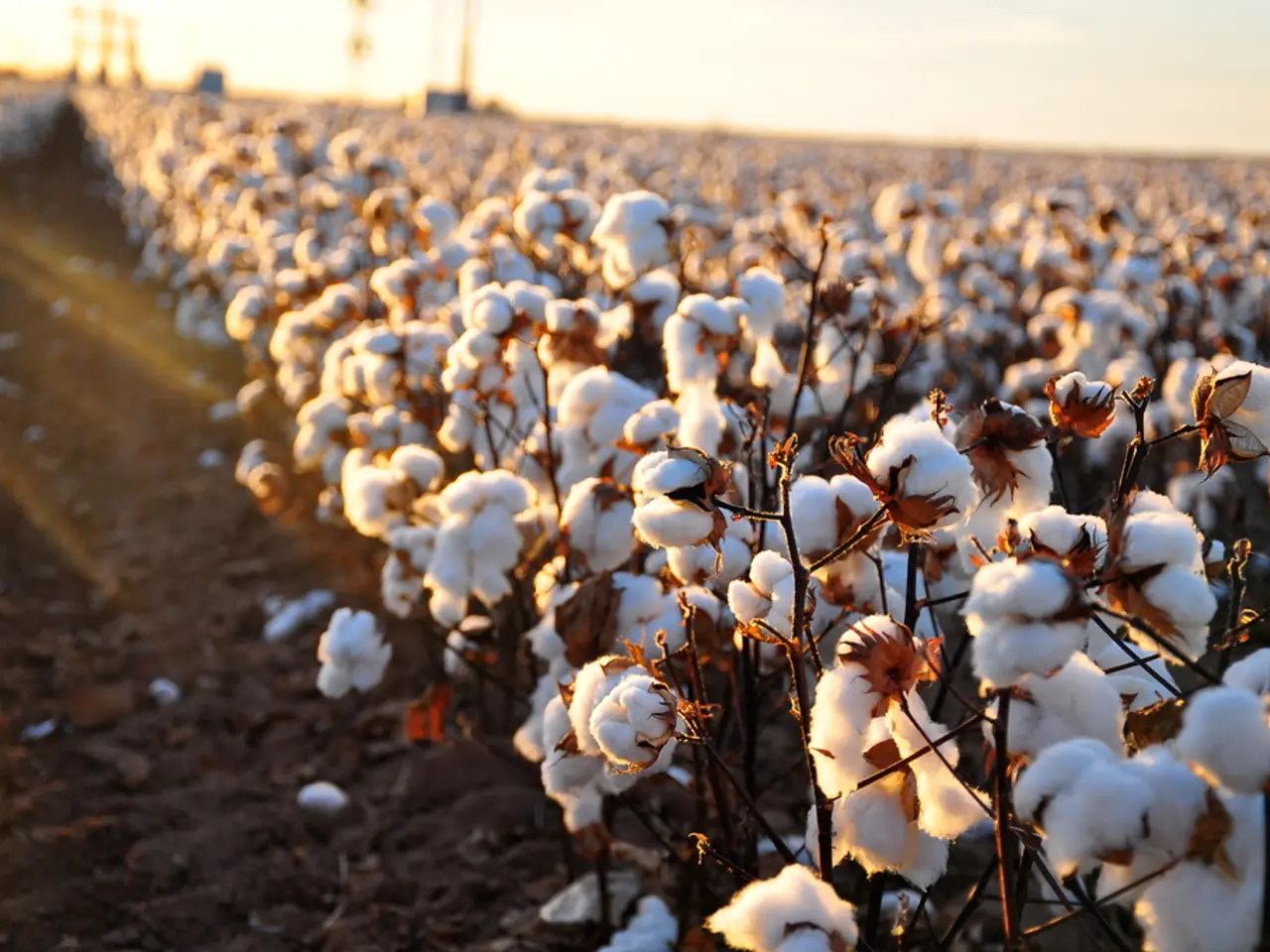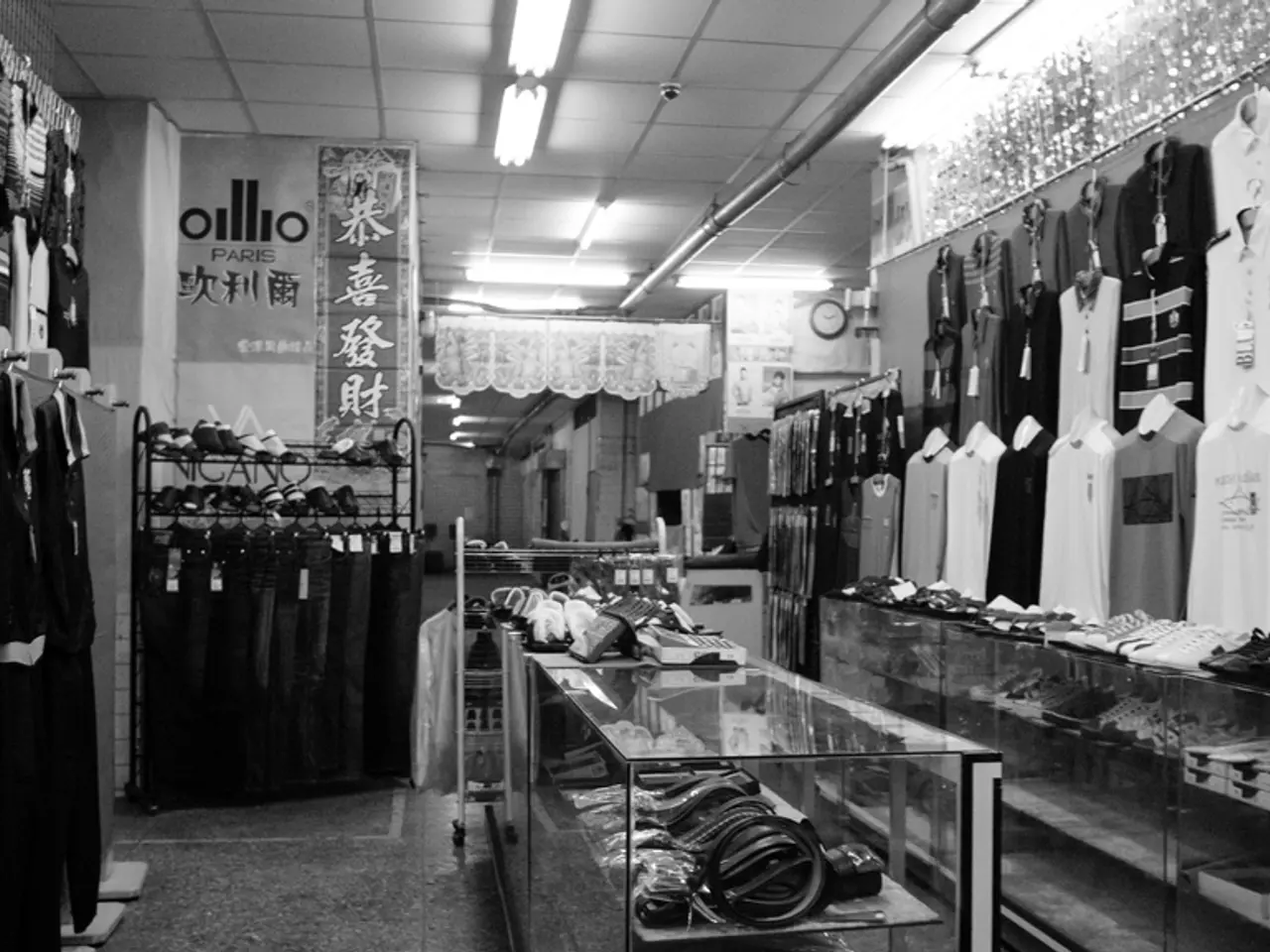The Question: Is Organic Linen Mandatory?
Organic Linen: A Sustainable and Health-Conscious Choice
Organic linen, a natural textile made from flax grown without synthetic pesticides or fertilizers, offers several benefits over non-organic linen. This choice is not just about sustainability, but also about health and durability, making it a worthwhile investment for many.
Environmental Benefits
Organic linen is a more sustainable choice compared to conventional linen. It promotes soil health, supports biodiversity, and often has a lower carbon footprint. Flax, even in conventional linen, requires fewer pesticides and less water compared to cotton. However, organic linen takes this a step further by eliminating toxic chemicals completely, making it a more eco-friendly option [1][3].
Health Benefits
Organic linen is free from traces of harmful chemicals that can remain in non-organic textiles, making it hypoallergenic and better for sensitive skin. This is particularly beneficial for people with skin sensitivities, allergies, or for babies and children [3][4].
Durability and Comfort
Linen itself is known for durability, breathability, and moisture-wicking properties, making it naturally comfortable and long-lasting. Organic linen retains these qualities but with the added benefit of being free from chemical residues. This means it often becomes softer with use while maintaining strength and temperature regulation [1][3].
Ethical Production
Organic linen products often come with certifications (e.g., GOTS) that guarantee environmentally friendly farming as well as fair labor practices, ensuring safer working conditions and better social outcomes in the supply chain [3][4].
The higher upfront cost of organic linen is often justified by its longer lifespan, reduced environmental impact, and avoidance of chemical residues. Choosing organic linen supports eco-friendly agriculture and healthier production practices, making it valuable for consumers prioritizing environmental responsibility and personal health [1][3][4].
Our website offers Scandi-style duvet covers made of 100% organic linen, taking advantage of its natural properties for comfortable sleep. Our organic linen bedding is GOTS certified, ensuring stringent environmental and social criteria for the processing of organic fibers, and prohibiting the use of toxic chemicals such as carcinogenic Azo dyes and chlorine bleach, as well as child labor and requiring fair wages [2].
In contrast, non-organic linen may be softer out of the box due to chemical softeners applied during production, but these chemicals can compromise the fibers' natural strength. Furthermore, these chemicals can be harmful to health [1].
When it comes to farming, producers within the "flax belt" of northern Europe, consisting of France, Belgium, and the Netherlands, have signed up to the European Flax charter, which guarantees environmentally friendly farming practices, zero waste, and zero genetically modified organisms (GMOs) [5].
In summary, organic linen is more sustainable, healthier for skin, ethically produced, and equally or more durable than conventional linen. The higher initial price is often justified by its longer lifespan, reduced environmental impact, and avoidance of chemical residues, making it worthwhile for consumers focused on sustainability and health [1][3][4].
[1] Organic Linen: The Sustainable Choice for a Better Night's Sleep. (2021). Retrieved from https://www.organiclifestylemagazine.com/organic-linen-the-sustainable-choice-for-a-better-nights-sleep/
[2] Our GOTS-Certified Organic Linen Bedding. (n.d.). Retrieved from https://www.ourscandi.com/collections/bedding/products/organic-linen-duvet-covers
[3] The Benefits of Organic Linen. (2020). Retrieved from https://www.thesleepshop.co.uk/blogs/news/the-benefits-of-organic-linen
[4] The Truth About Organic Linen. (2020). Retrieved from https://www.thelinenworks.com/blogs/news/the-truth-about-organic-linen
[5] The European Flax Charter. (n.d.). Retrieved from https://www.flaxandlinen.com/en/the-european-flax-charter/
- In addition to its sustainability benefits, organic linen also contributes to health-and-wellness by being hypoallergenic and free from harmful chemicals, making it suitable for people with skin sensitivities, allergies, or babies.
- For lifestyle enthusiasts seeking environmentally-friendly products, organic linen, with its reduced carbon footprint, support for biodiversity, and eco-friendly farming practices, aligns well with the principles of home-and-garden and environmental-science.
- As the fashion-and-beauty industry continues to focus on ethical production, organic linen, with certifications like GOTS, ensures fair labor practices and stringent environmental criteria, contributing to a more responsible and sustainable industry.




